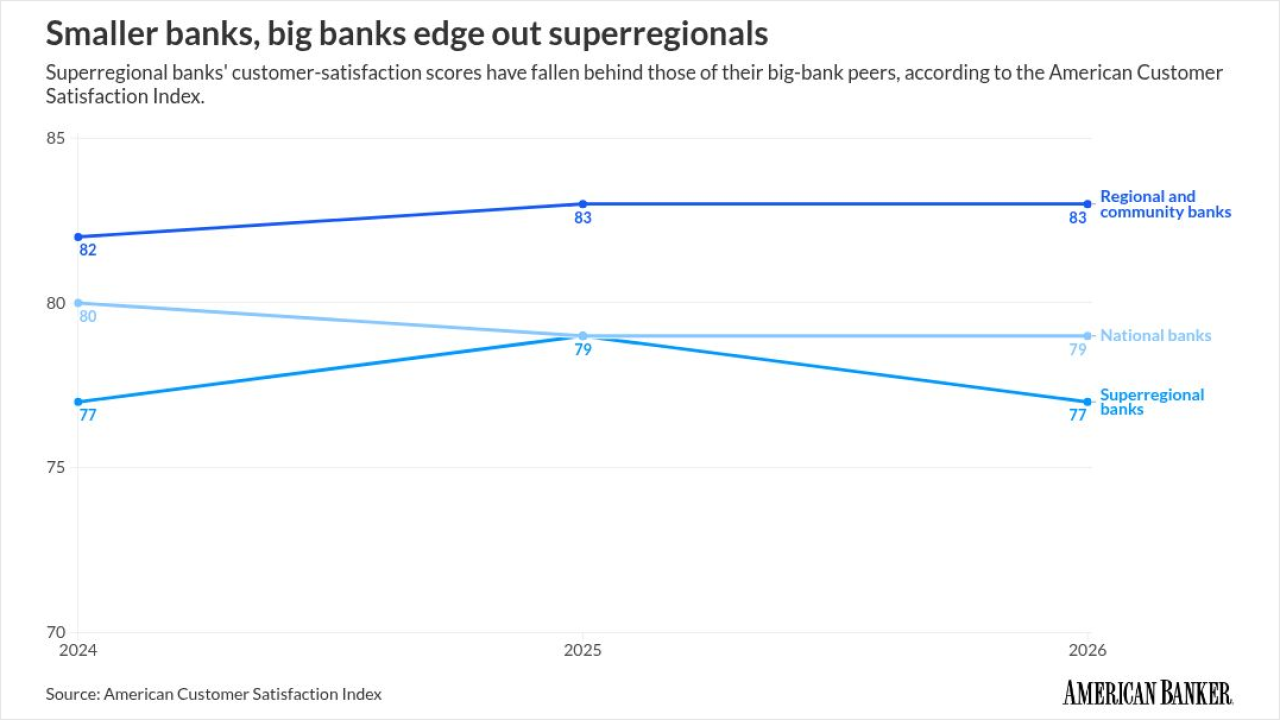Receiving Wide Coverage ...
Mortgage Morass: Low interest rates and the revamped Home Affordable Refinancing Program have turbocharged demand for mortgage refis. But given tighter underwriting standards and leaner capacity than in previous refi waves, delivery of the product takes a while: 70 days to close on average, up from 45 days a year ago, according to an Accenture study cited in a front-page story in today's Journal. The article is chock-full of anecdotes about borrowers frustrated by the wait, and it points out that lenders are using the tried-and-true refi boom strategy of lowering their rates less than they otherwise might, mainly to keep from getting swamped with applicants. (This has the added benefit of juicing profit margins, as our American Banker colleague Kate Berry reports here.) A sidebar to the Journal story notes that closing costs are on the rise, limiting the savings for borrowers who refinance. Meanwhile, bad loans and bad blood from the bubble years continue to haunt the banking sector. An FT story concisely describes recent examples: the Treasury Department has okayed a plan for Ally Financial to place its stepchild mortgage unit ResCap into bankruptcy; if that goes well enough, Bank of America could theoretically do the same with Countrywide; Wells Fargo has increased its reserve for repurchases of soured mortgages and has been examined by the Justice Department for potential fair lending violations. Finally, Beazer Homes is one of the most recent companies to try to seize an opportunity created by the mortgage mess — the Journal reports that the homebuilder has formed a REIT that will buy and rent out single-family homes that went into foreclosure or short sales, including houses that Beazer built and sold in the first place.
Processing Content
Liquid Launch: JPMorgan Chase is now the biggest bank yet to offer reloadable, general-purpose prepaid cards. It's positioning the Liquid card, sold in branches, as "a low-cost alternative to traditional checking," an executive tells the Journal. The card costs $4.95 a month (unless you get a regular checking account from Chase, in which case the fee is waived, a nugget that American Banker's eagle-eyed tech and risk management editor Daniel Wolfe spotted in the terms and conditions). That compares to $12 a month for basic checking accounts at Chase that don't meet minimum balance requirements. Bank Talk, a savvy blog covering the finances of the underbanked (no relation to our even savvier BankThink), laments that Liquid has limited functionality — no online bill pay or linked savings account — and notes that this is an unintended consequence of the way the Durbin rule was implemented for large banks. (Another authority on the underbanked market, Jennifer Tescher, explained the problem in BankThink last year.) Still, Bank Talk says, it's heartening to see a bank with a huge national network of ATMs offering a prepaid card with no charge for using its own machines, since ATM charges make up a huge proportion of total fees paid by prepaid users. (Most of the cards in this market are sold through retail chains like drugstores.) The blog gets bonus points for discovering an amusing Google search result for "Chase Liquid."
New York Times
“Deal Professor” columnist Steven M. Davidoff writes that the Federal Reserve is blocking efforts by activist shareholders to gain board representation at underperforming community banks. “The Fed appears to prefer the management of poorly performing banks over those who want to run the banks’ operations better. To accomplish this, it is taking a bureaucratic view of its regulations,” such as by telling dissident investors that waging a standard proxy fight could subject them to regulation as bank holding companies. It’s a pretty scathing piece. Our favorite detail: one of the bank boards that Davidoff says the Fed is “protecting” gives free iPads to its directors.





